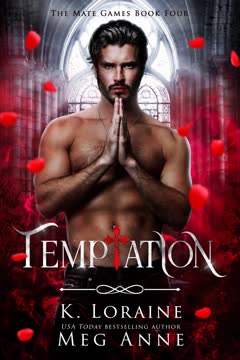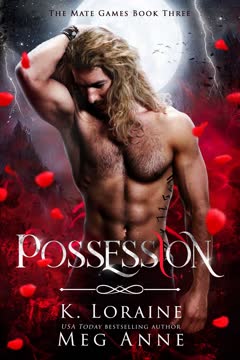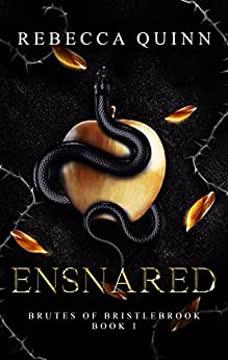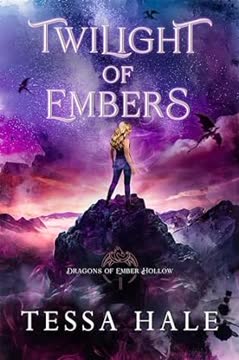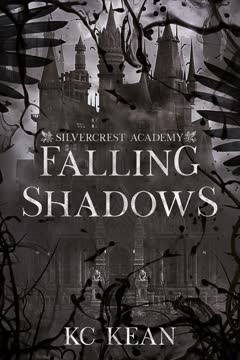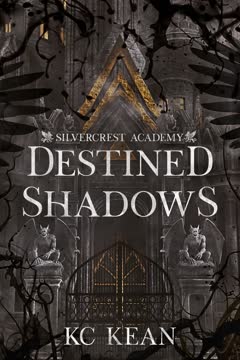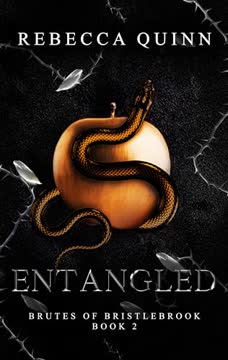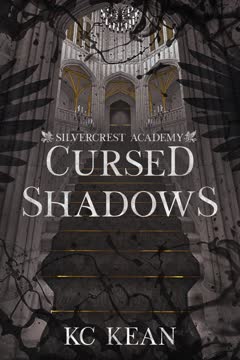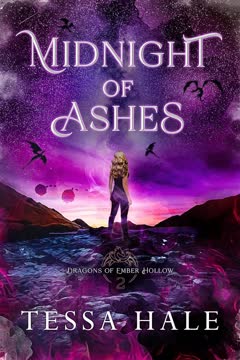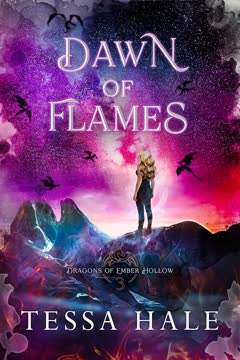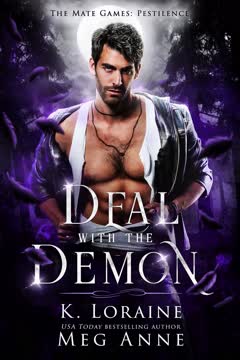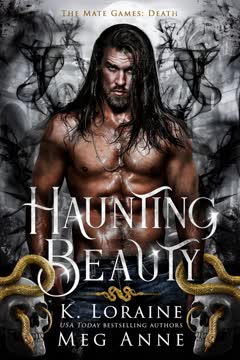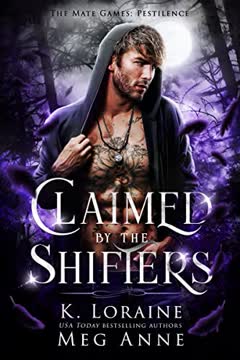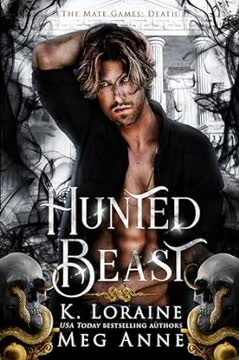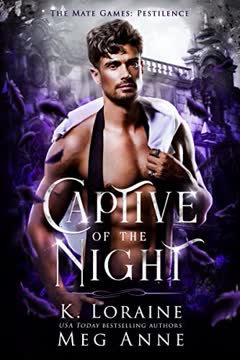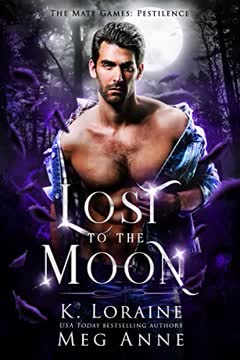Plot Summary
Prodigal Priest Returns Home
Caleb Gallagher, newly ordained, returns to his Irish island home in 1922, intent on restoring his plague-ravaged parish. Haunted by loss, he finds solace in his faith and the familiar faces of his childhood. But his first night is shattered by the arrival of Aisling, a seductive vampire who turns him against his will. In a single night, Caleb is forced to slaughter his entire village, becoming the very monster he once abhorred. The trauma of his transformation and the weight of his sins set the stage for a century of guilt, self-loathing, and a desperate search for redemption. Caleb's journey from devout priest to damned vampire is both a literal and spiritual exile, marking the beginning of a story where faith, temptation, and damnation are inextricably entwined.
Night of Blood and Betrayal
Enslaved by Aisling, Caleb spends decades as her unwilling instrument of death, his faith eroding with every atrocity. On a bitter Alaskan night in 1997, he is confronted by Gabriel, the archangel, who offers him a chance at redemption: stop the coming Apocalypse in exchange for his soul. Bound to the seven seals, Caleb is thrust into a new purpose, but the cost is steep. The encounter with the divine is both a blessing and a curse, as Caleb is forced to confront the reality of evil, the ambiguity of God's will, and the possibility that salvation may demand even greater sacrifices. The chapter ends with Caleb's arrival at Ravenscroft University, a place where fate, prophecy and forbidden love will collide.
Bargain with the Divine
Caleb's new life as a professor at Ravenscroft is a fragile balance between his monstrous nature and his divine mission. He is tasked with protecting Sunday Fallon, a young woman whose very existence is prophesied to bring about the end times. The Society—a secret cabal of supernatural power-brokers—manipulates events from the shadows, each with their own agenda. Caleb's bond with Sunday is immediate and intense, complicated by the presence of her other mates: Kingston, Alek, and Noah. As the seals begin to break and the harbingers of the Apocalypse stir, Caleb must navigate a web of love, loyalty, and betrayal, knowing that every choice may tip the world closer to ruin.
The Chosen and the Cursed
Sunday's life is upended as she is drawn into the Mate Games, a supernatural contest with cosmic stakes. Her relationships with her four mates are fraught with passion, jealousy, and secrets. Each man is marked by his own darkness: Kingston, the wolf shifter with a wounded heart; Alek, the berserker haunted by his lineage; Noah, the vampire prince torn between duty and desire; and Caleb, the priest-turned-vampire, her most dangerous temptation. As Sunday's pregnancy progresses at an unnatural pace, the group is beset by enemies from within and without. The threat of the Apocalypse looms, and the lines between love and manipulation blur, forcing each character to confront the truth of their bonds.
Mates, Secrets, and Schemes
The revelation that Sunday's unborn child may be the harbinger of the Apocalypse fractures the group. Plots to save or destroy the child divide the mates, and Sunday, feeling betrayed, flees. Caleb, acting on his own interpretation of prophecy, kidnaps her to a remote island, believing only he can protect her—and the world. The others, wracked by guilt and confusion, launch a desperate search, enlisting witches, hackers, and old enemies. The Society's true motives are revealed, and the web of manipulation tightens. Sunday, isolated and pregnant, must decide whom to trust, even as her own body becomes a battleground for fate.
The Abduction of Sunday
On the island, Caleb and Sunday are locked in a battle of wills and desires. Their relationship oscillates between captor and captive, lovers and adversaries. Caleb's guilt and Sunday's fury fuel a dangerous game of seduction and rebellion. As Sunday plots her escape, she discovers the island's haunted past and the ghosts—literal and figurative—that bind Caleb. The outside world closes in, but the island's magical protections keep them hidden. The tension between love and autonomy, fate and free will, reaches a fever pitch as Sunday prepares to risk everything for her child's future.
Island of Ghosts and Guilt
The island becomes a crucible for both Caleb and Sunday. Caleb is forced to confront the full horror of his past, reliving the massacre of his village and the loss of his faith. Sunday, meanwhile, encounters the spirits of the island's dead, learning that the boundaries between life and death, guilt and forgiveness, are porous. The arrival of the other mates, after a harrowing search, brings old wounds to the surface. The group must reckon with their own complicity in the Society's schemes and the possibility that love itself may be a form of manipulation. The storm outside mirrors the turmoil within, as the Apocalypse draws ever closer.
The Lovers' Prison
In the claustrophobic intimacy of the island cottage, Sunday and Caleb's relationship deepens, shaped by confessions, punishments, and moments of unexpected tenderness. The other mates, once reunited, must navigate jealousy, forgiveness, and the re-forging of their bonds. The threat of the Apocalypse is ever-present, but so too is the possibility of redemption. The group's unity is tested by external attacks and internal doubts, but the birth of Sunday's child becomes both a symbol of hope and a harbinger of doom. The lovers' prison is both literal and metaphorical, a place where the boundaries between captor and captive, sinner and saint, are blurred.
The Search and the Society
The mates' search for Sunday brings them into direct conflict with the Society and the supernatural powers that govern their world. Old secrets are unearthed: the true nature of the Mate Games, the identities of the Horsewomen, and the cosmic stakes of Sunday's pregnancy. The group must confront the reality that they are both pawns and players in a much larger game. Betrayals and sacrifices abound, and the cost of love becomes painfully clear. The Society's machinations are revealed to be both self-serving and tragically misguided, and the mates must decide whether to uphold or defy the destinies laid out for them.
The Gathering Storm
As Sunday's labor approaches, the world is beset by plagues, disasters, and supernatural attacks. The Horsewomen—War, Pestilence, Famine, and Death—reveal themselves, each with their own agenda for the Apocalypse. The mates are beset by nightmares, hallucinations, and the loss of loved ones. The boundaries between reality and illusion blur, and the group is forced to confront their deepest fears and regrets. The storm outside is mirrored by the chaos within, as the final battle for the fate of the world begins.
The Horsewomen's Game
Sunday's mother, revealed as War, orchestrates the final act of the Mate Games. The birth of Eden, Sunday's daughter, becomes the catalyst for the opening of a portal to hell. The mates are trapped in nightmares, forced to relive their worst moments and greatest losses. Caleb sacrifices himself to save Sunday, giving her his blood and his soul. The Horsewomen's true plan is revealed: the Mate Games are a cosmic contest, and Sunday is both pawn and queen. The cost of victory is steep, and the world teeters on the brink of annihilation.
Birth of the Apocalypse
In a harrowing sequence, Sunday gives birth as the world shakes and the portal opens. Caleb's death is both a personal and cosmic sacrifice, his love for Sunday transcending even the boundaries of life and death. The mates, battered and broken, fight to save Eden and close the portal. Sunday, empowered by rage and love, confronts her mother and the Horsewomen, wielding the sword of Michael to end the threat. The Apocalypse is averted, but at a terrible cost: the loss of innocence, the shattering of bonds, and the death of a beloved mate.
Sacrifice and Salvation
In the aftermath, Sunday is left to mourn Caleb and question the nature of her relationships. Gabriel, the archangel, offers her a choice: to restore the mates' free will by breaking the bonds that tied them to her. Sunday, unwilling to live a lie, chooses to set them free, even at the cost of her own happiness. Caleb, in heaven, is given a similar choice: remain in paradise or return to the world as a vampire, with all the pain and guilt that entails. Both choose love, accepting the price of freedom and the burden of memory.
The Aftermath of War
Freed from the spell, the mates must confront the truth of their feelings. Despite the loss of the magical bonds, their love endures, proven by choice rather than compulsion. Caleb returns, resurrected by his own sacrifice and Gabriel's intervention. The group is reunited, but forever changed by what they have endured. The world is safe, for now, but the scars of war and loss remain. The birth of Eden is both a miracle and a reminder of the cost of victory.
The Price of Freedom
Sunday and her mates must learn to live with the consequences of their choices. The bonds they remake are forged in truth, not magic. The family they build is one of choice, not destiny. The world they saved is imperfect, but it is theirs. The price of freedom is high, but it is worth paying. The story ends not with a happily ever after, but with the promise of new beginnings, new challenges, and the enduring power of love.
Reunion and Redemption
The mates gather for a new mating ceremony, this time by choice and with the blessing of their families. Old wounds are healed, new promises are made, and the bonds between them are reforged. The ceremony is both a celebration and a catharsis, a chance to honor the past and embrace the future. The group, once fractured by secrets and manipulation, is now united by love, trust, and the hard-won knowledge that true freedom comes from choice.
The Bonds Remade
In a series of intimate, passionate encounters, Sunday and her mates reclaim their love for one another. Each bond is remade, not by magic, but by mutual desire and consent. The scars of the past are acknowledged, but they do not define the future. The family they create is unconventional, but it is real. The story ends with the promise of more adventures, more challenges, and the enduring strength of love chosen freely.
The Queen's Gambit
As the dust settles, it becomes clear that the Mate Games are far from over. The Horsewomen's defeat is only the end of one chapter; new threats and new players are already moving into position. Sunday, once a pawn, is now a queen, her choices shaping the fate of the world. The story closes with a sense of hope and uncertainty, a reminder that every ending is also a beginning, and that the greatest power lies in the freedom to choose.
Characters
Caleb Gallagher
Caleb is the emotional and spiritual core of the story, a man torn between faith and damnation. Once a devout priest, his forced transformation into a vampire is both a literal and metaphorical fall from grace. His journey is one of guilt, self-loathing, and a desperate search for redemption. Caleb's love for Sunday is both his salvation and his temptation, driving him to acts of both tenderness and violence. His relationship with the other mates is complex, marked by rivalry, respect, and shared trauma. Caleb's ultimate sacrifice—giving his life and soul to save Sunday—cements his role as both martyr and redeemer. His resurrection is a testament to the power of love and the possibility of forgiveness, even for the most broken souls.
Sunday Fallon
Sunday is the axis around which the story turns. Marked from birth as the harbinger of the Apocalypse, she is both pawn and player in the cosmic game. Her relationships with her mates are passionate, fraught, and deeply human, shaped by love, betrayal, and the struggle for autonomy. Sunday's journey is one of self-discovery, as she learns to trust her instincts, claim her power, and make choices for herself and her child. Her willingness to sacrifice her own happiness for the freedom of her mates is both her greatest strength and her deepest wound. By the end, Sunday is transformed from a victim of fate to a queen in her own right, her choices shaping the future of the world.
Kingston Farrell
Kingston is the most outwardly brash and playful of the mates, but beneath his bravado lies deep pain and fierce loyalty. His journey is one of learning to trust, to forgive, and to accept love without conditions. Kingston's relationship with Sunday is marked by humor, passion, and a shared sense of loss. His struggles with his own family and the weight of leadership add depth to his character, making him both a source of strength and vulnerability. Kingston's willingness to fight for his family, even at the cost of his own happiness, is a testament to his growth and the power of chosen bonds.
Alek Nordson
Alek is both the group's muscle and its emotional anchor. Haunted by his lineage and the fear of losing control, he finds peace and purpose in his love for Sunday and his brothers-in-arms. Alek's journey is one of embracing his power without succumbing to rage, of finding balance between strength and tenderness. His relationship with Sunday is marked by devotion, protectiveness, and a deep sense of belonging. Alek's willingness to sacrifice for his family, and his ability to find hope even in the darkest moments, make him a vital part of the group's survival and healing.
Noah Blackthorne
Noah is the most reserved and introspective of the mates, burdened by duty, legacy, and the fear of repeating his father's mistakes. His love for Sunday is both a source of strength and a cause of inner turmoil, as he struggles to reconcile his desires with his responsibilities. Noah's journey is one of learning to trust, to let go of control, and to accept love without reservation. His relationship with the other mates is marked by rivalry, respect, and a shared sense of purpose. Noah's ultimate acceptance of his place in the family, and his willingness to fight for Sunday and Eden, is a testament to his growth and the power of chosen love.
Aisling
Aisling is the embodiment of temptation and destruction, the force that sets Caleb on his path of damnation. Her role is both literal and symbolic, representing the dangers of unchecked desire and the consequences of surrendering to darkness. Aisling's relationship with Caleb is one of domination and manipulation, a twisted mirror of the love he later finds with Sunday. Her presence haunts the story, a reminder that the past can never be fully escaped.
Gabriel
Gabriel is both guide and trickster, offering Caleb a chance at redemption while withholding the full truth of the cosmic game. His interventions are both helpful and ambiguous, forcing the characters to confront the limits of faith, free will, and destiny. Gabriel's role is to test, to challenge, and ultimately to reward those who choose love and sacrifice over self-interest. His presence is a reminder that even the divine are bound by rules, and that true power lies in the freedom to choose.
Minerva (Sunday's Mother / War)
Minerva is the story's primary antagonist, orchestrating the Mate Games and manipulating her daughter and the mates for her own ends. Her motivations are both personal and cosmic, driven by a desire for power, revenge, and the fulfillment of prophecy. Minerva's relationship with Sunday is a twisted reflection of motherhood, marked by betrayal, manipulation, and a perverse form of love. Her defeat is both a personal and cosmic victory, but her legacy lingers, a reminder that the cycle of power and sacrifice is never truly broken.
The Society
The Society is both a collective character and a symbol of the dangers of unchecked power and the illusion of control. Comprised of supernatural leaders, they seek to shape the world according to their own vision, but are ultimately undone by their own hubris and the unpredictability of love. Their machinations drive much of the plot, but their downfall is a cautionary tale about the limits of manipulation and the cost of playing god.
Eden
Eden is both a symbol and a character, the child whose birth is prophesied to bring about the end of the world. Her existence is the catalyst for the story's central conflicts, but she is also a reminder of the possibility of redemption, renewal, and the enduring power of love. Eden's survival is both a miracle and a challenge, a promise that the future is unwritten and that hope can be found even in the darkest times.
Plot Devices
The Mate Games
The Mate Games serve as the central narrative structure, a supernatural contest orchestrated by the Horsewomen and the Society to determine the fate of the world. The Games are both literal and metaphorical, a test of love, loyalty, and the power of choice. The use of multiple mates, magical bonds, and shifting alliances creates a web of tension and desire that drives the plot. The Games are also a commentary on the dangers of manipulation, the illusion of control, and the possibility of redemption through sacrifice.
Prophecy and Foreshadowing
Prophecy is both a driving force and a source of tension, shaping the characters' actions and the unfolding of events. The breaking of the seals, the signs of the Apocalypse, and the revelations of the Society all serve to foreshadow the story's climactic confrontations. The tension between destiny and free will is a recurring theme, forcing the characters to confront the limits of their own agency and the cost of defying fate.
Sacrifice and Redemption
Sacrifice is at the heart of the story, from Caleb's initial fall to his ultimate redemption. The willingness to give up happiness, power, or even life itself for the sake of others is both a source of tragedy and a path to salvation. The story explores the possibility of forgiveness, both divine and human, and the idea that true redemption can only be found through selfless love.
Multiple Perspectives and Nonlinear Narrative
The use of multiple narrators and shifting timelines allows for a rich exploration of each character's inner world. The nonlinear structure mirrors the chaos of the Mate Games and the unpredictability of fate, while also providing deep psychological insight into the characters' motivations, fears, and desires. The interplay of past and present, reality and illusion, creates a sense of disorientation that heightens the story's emotional impact.
Magical Realism and Symbolism
The story employs elements of magical realism, blending the supernatural with the mundane to create a world where anything is possible. Symbols—such as the sword of Michael, the shroud, and the marks of mating—carry deep emotional and thematic weight. The boundaries between life and death, love and manipulation, fate and freedom, are constantly blurred, forcing the characters and the reader to question what is real and what is illusion.
Analysis
Temptation is a sweeping, emotionally charged reimagining of the paranormal romance, blending apocalyptic stakes with deep psychological insight and a relentless interrogation of fate, free will, and the price of love. At its core, the novel is a meditation on the power of choice: the freedom to love, to sacrifice, to forgive, and to shape one's own destiny, even in the face of cosmic manipulation. The story's use of multiple perspectives and nonlinear narrative structure allows for a nuanced exploration of trauma, guilt, and redemption, while the supernatural elements serve as both metaphor and literal threat. The Mate Games themselves are a brilliant device, exposing the dangers of unchecked power and the illusion of control, while also celebrating the resilience of the human (and inhuman) heart. Ultimately, Temptation is a story about the possibility of hope in a broken world, the enduring strength of chosen family, and the radical act of loving freely, even when the odds are stacked against you. Its lessons are both timeless and timely: that true power lies not in domination, but in the willingness to choose—and to let others choose—love, again and again.
Last updated:
Review Summary
Temptation, the final book in The Mate Games series, received overwhelmingly positive reviews. Readers praised the steamy romance, complex characters, and compelling plot. Many considered it the best book of the series, with particular praise for Caleb's character development. The full-cast audiobook narration was highly acclaimed. Some readers found the pacing uneven and certain plot elements rushed or underdeveloped. Overall, the series was deemed addictive, emotional, and satisfying, with most reviewers giving it 4-5 stars and considering it one of the best paranormal reverse harem romances they've read.
The Mate Games: War Series Series
Similar Books
Download PDF
Download EPUB
.epub digital book format is ideal for reading ebooks on phones, tablets, and e-readers.
